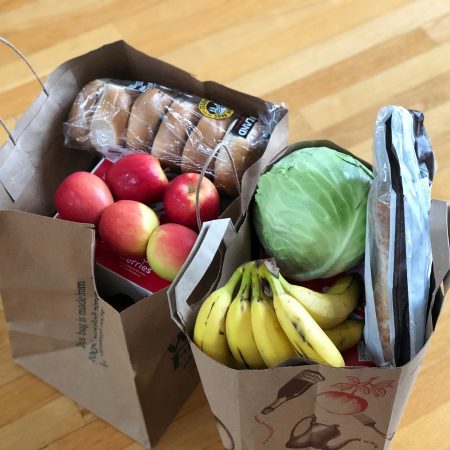The Metro: Rep. Rashida Tlaib on shutdown impacts, crisis in Gaza, Mamdani’s rise
Hunger isn’t inevitable. The United States has the tools to prevent it — but during this historic shutdown, millions of Americans have been left waiting to see if those tools will be used.
In Michigan, more than 1.4 million people rely on SNAP (the Supplemental Nutrition Assistance Program), to buy food each month. Most are children, seniors, or people living with disabilities.
When the federal government shutdown froze November benefits, families across the state faced growing uncertainty about how they would put food on the table.
Contingency funds released after court rulings
Late last week, two federal judges ordered the U.S. Department of Agriculture to use 5 billion in contingency funds to continue SNAP payments.
On the Monday deadline, the Trump administration announced it would comply, but it would pay out half the amount recipients typically receive. Officials warn the solution is temporary. If the shutdown continues, December SNAP funding and other safety-net programs could again be in jeopardy.
Broader impacts across Michigan
Even with food aid partially restored, the shutdown is rippling through daily life.
- Federal workers and contractors have gone weeks without paychecks.
- Housing vouchers, heating assistance, and childcare subsidies face processing delays.
- Head Start programs risk closures in several states.
- Small-business loans, IRS services, and passport processing remain slowed or suspended
Those disruptions can be just as destabilizing for families living close to the edge as lost food aid.
This is especially true in places like Michigan’s 12th District, which covers Detroit, Dearborn, Inkster, and downriver communities. These areas are shaped by working-class families, new immigrants, and people living paycheck to paycheck.
Congresswoman Rashida Tlaib, representing the 12th District, joined Robyn Vincent on The Metro to discuss these reverberations.
The discussion also turned to the ongoing humanitarian crisis in Gaza and how it is reshaping politics with people like New York City mayoral candidate Zohran Mamdani, a democratic socialist who, like Tlaib, has been outspoken about the crisis and U.S. foreign aid priorities. His advocacy, and the movement around him, highlight a generational push inside the Democratic Party for a more value-driven, intersectional approach to policymaking, one that connects international issues to struggles faced by working class communities in cities like Detroit.
For updates or emergency food aid, residents can visit the Michigan Department of Health and Human Services Food Assistance page or call 2-1-1.
Editor’s Note: This conversation aired shortly before the Trump administration announced it would comply with court order and use contingency money to fund SNAP.
Listen to The Metro weekdays from 10 a.m. to noon ET on 101.9 FM and streaming on demand.
Subscribe to The Metro on Apple Podcasts, Spotify, NPR.org or wherever you get your podcasts.
Trusted, accurate, up-to-date.
WDET strives to make our journalism accessible to everyone. As a public media institution, we maintain our journalistic integrity through independent support from readers like you. If you value WDET as your source of news, music and conversation, please make a gift today.Donate today »
More stories from The Metro
The post The Metro: Rep. Rashida Tlaib on shutdown impacts, crisis in Gaza, Mamdani’s rise appeared first on WDET 101.9 FM.








